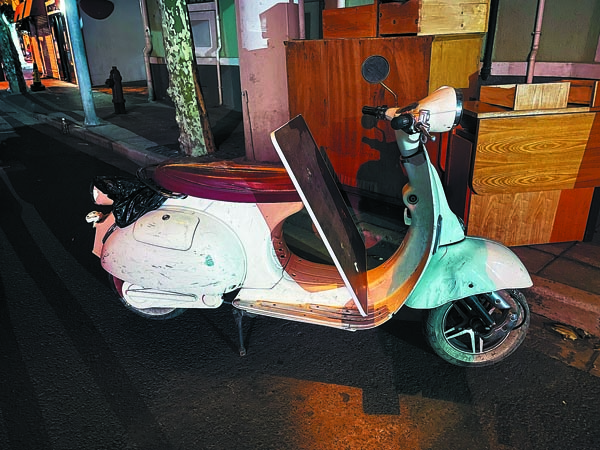'Treasure' hunt


'Healing process'
About 90 percent of objects in Chen's daily life come from "stooping" or are secondhand. She has found many useful goods for her home, such as mattresses, baskets and even Christmas trees. But what she likes the most is tableware.
"My only two bowls were broken during the lockdown, which led me to focus on finding bowls and pans when 'stooping'. I picked up all kinds of beautiful tableware from various places to be used for a long time," she said.
Chen added that her expenses now are only rent and meals. "I can often pick up items (from the street) instead of buying so I can save 50 to 60 percent of my monthly salary."
"'Stooping' is a healing process for me. I enjoy the scenery along a road, and that helps to manage my emotions. Also, I feel happy when I can pick something up," Chen said.
The first time she realized that sense of joy was when she found a fire hydrant that was left from the concession period but well-preserved on a roadside. "The act of 'stooping' gets you to notice things that you would not notice otherwise, and these things are a part of the beauty of a city."
In addition to enjoying a "stooping" lifestyle, Chen had another initial intention. "I want to do something that was niche and could only happen in Shanghai, proving that the city is very interesting.
"Some friends told me that they don't like Shanghai anymore and would leave after the lockdown was lifted. But because I like Shanghai so much, I wanted to attract more young people back through doing meaningful things."
With more people taking part in "stooping", Chen's groups on Xiaohongshu have expanded to five, with 500 people per group. She has also set up WeChat groups in 16 districts across the city, so people can share information on their used goods or provide "stooping" resources.




































